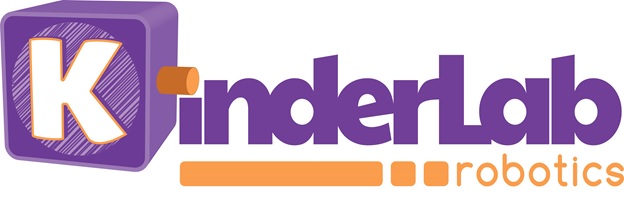4 Keys to The Future of Student Engagement

One Chicago afterschool program sends 95% of its kids to college. Here’s how they do it.
By Sarah James
When it comes to student engagement, it truly does take a village. Teachers, youth leaders, parents, and other family members all have a part to play. The more adults in a student’s life support them—and believe they can succeed—the more likely they are to succeed. This is particularly true when it comes to students in areas where high poverty rates and limited school funding may mean that parents need to work multiple jobs, or teachers may have larger class sizes, limiting the amount of time they can devote to individual students. In these areas, afterschool programs can help offer extra, often crucial, support.
I am the senior director of program operations for By The Hand Club For Kids, a Chicago-based afterschool program that serves 1,360 kids at five locations in four different neighborhoods. In these neighborhoods, kids face challenges such as poverty, gang violence, and a dropout rate as high as 60%. (Last year, Chicago saw more murders than Los Angeles and New York City combined.)
Our program has a 100% high school graduation rate (compared with a rate of about 65–70% in Chicago Public Schools), and 95% of our kids attend college. We don’t achieve those results alone. We partner with Chicago Public Schools to identify kids who are falling behind, which usually means they have all D’s and F’s in school, as well as frequent tardies and absences. We bus these kids to our location after each school day. Buses are one of our major expenses, but a completely necessary one: it’s not safe for our kids to cross neighborhood lines because of the gang activity. Our mission is to offer the children in these neighborhoods the support they need to reach their potential. Here are some of our best practices that bring our mission to life.
1) A Blended Approach to Personalized Learning
We use a rotation schedule for our academic activities. It helps the kids focus on one task for a specific amount of time without getting distracted, which keeps boredom and behavior problems down and also helps teach them time-management skills. We go through 30-minute rotations, which includes time in a blended learning classroom, a read-aloud session, and homework time, as well as an enrichment period where students can choose to take a fitness, art, or science-project class.
Our blended learning class time allows us to help our students with their individualized needs. To further personalize learning, we’ve adopted several different reading software programs. We use Flocabulary (a rap content-based program) with our 1st– through 12th-grade students, along with Lexia Core5 for our K–5 students and Reading Horizons for our 6th– through 8th-grade students.
Kids are assessed the first time they get on the computer to learn their strengths and weakness, which the program uses to give them leveled reading assignments. Students work at their own pace and can choose what they focus on each day. We had one 7th-grade student whose initial assessment was about a 5th– or 6th-grade level. On his second assessment (about five months later), he scored at a 9th-grade reading level. When he finished the program this year, his last assessment brought him up to a 12th-grade reading level.
Our read-aloud sessions help students to develop verbal and listening skills, and also allow us to introduce them to different genres, new vocabulary, and literature they wouldn’t encounter on their own. During these sessions, our staff read books to kids and lead discussions. Lots of our kids didn’t have this experience in their homes during their early childhood, so we’re trying to build a love for reading and show that reading can be pleasurable.
With our older junior high and high school students, we also use Khan Academy as a learning tool to reinforce or reteach what they are learning in school, and we offer them the incentive of playing online games as a reward for working hard and meeting their weekly goals.
2) Connecting with the Whole Child
We take a whole-child approach with our students because we know there’s more to them than their academic performance. We feed our kids a hot meal every day, and we also provide free eye and dental exams. We had a young lady who needed $10,000 worth of dental work, and her mother didn’t have insurance. She was in so much pain she couldn’t even go to school. We took her to a clinic we partner with, and asked what they could do. Because of our partnership, they got it down to $1,000. By The Hand covered $500, and so her mom only had to cover $500. Immediately afterwards, that young lady started doing better in school. It was such a simple fix, but one that wouldn’t have been possible if we didn’t support every aspect of our kids.
These students also need other forms of help. They talk about how other people have put them down and discouraged them. That’s part of the reason we make a point to do things with the kids outside of By the Hand, like a recent trip I took with a group of kids to Washington D.C.: to build those relationships between kids and team leaders. When kids develop mentors and look up to the staff, they think, “If this person went to college, I can, too.”
To help us connect with the different people who have an influence on the success and direction of our students’ lives, our team leaders do home and school visits as well.
Under-resourced kids often haven’t been taught the social-emotional skills they need to excel in life. Blended learning helps kids develop these skills—as long as there is enough emphasis on human interaction. For instance, during our homework time there might be a kid who is sulking and not doing his homework. Instead of forcing him to follow the instructions, I like to sit down and learn why he has that attitude. I often find that the answer is “kids were making fun of me at school today,” or something else is going on that they just can’t move past. We also partner with a counseling center, since many of these kids live in toxic stress environments, which means we need to get them to feel safe, comfortable, loved, and supported. Otherwise they’re going to be stuck in a fight-or-flight pattern, and our data shows that their brains can’t learn in that state.
3) Using Data to Identify Challenges and Reinforce Student Voice
The data we collect is increasingly informing what we do at By The Hand. We gather information on attendance, retention, homework completion, home and school visits, and technology-enabled programs. We use that data to analyze how we are doing, identify problem areas and successes, and make changes where needed. We do classroom observations twice a year, which include looking at student engagement as well as the interactions between students and team leaders.
Next year, we’ll be conducting two student surveys, and will use students’ opinions to evaluate every aspect of our program. We’ll also survey our team leaders regarding best practices in various areas, and share those ideas with our staff.
4) Giving Kids a Path to the Future
We talk about college with our kids a lot. We have a college director to help students get into college, and we do college visits between 9th and 12th grade (and even some in elementary school). Our students can apply for a By The Hand scholarship worth $1,500 per semester, and our college director helps them apply for other scholarships. We also have staff to drive kids to and from college for breaks.
Even for our kids who don’t go to college, we have staff to help them apply for jobs or get into trade schools. We had one kid who got his commercial driver’s license, and now he’s a manager at his trucking company. Another student who was with us since 4th grade is now on staff, and has been for four years now.
To support all of these student engagement efforts, we’re moving towards digital enrollment for our program so that we can connect to parents and schools more seamlessly. We’re also holding staff training to help us focus on responding to trauma and building our cultural inclusivity. When it comes to being a part of the village that engages each of our students, we’re always looking for ways to improve.
Sarah James is the senior director of program operations for By The Hand Club For Kids.





